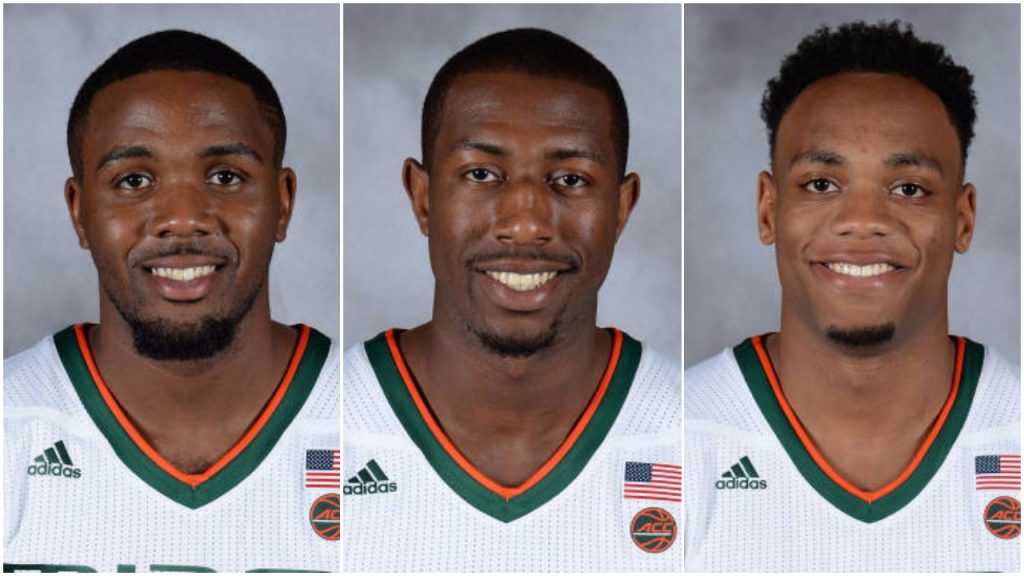
Even with Head Coach Jim Larrañaga bringing in the first top-10 recruiting class in the history of the program, almost every NCAA prediction poll pegged the Hurricanes to take a step back this season. Losing great college players Sheldon McClellan, Angel Rodriguez and Tonye Jekiri would likely set almost any program back, especially after a season in which the team claimed a three seed in the NCAA Tournament. The biggest question mark with Miami remains the same since the season tipped off: Who, if anybody, can fill the scoring hole left by that transcendent senior backcourt?
The answer so far this season has been junior guard Ja’Quan Newton. Newton’s talent has never been in question, but there has always been speculation regarding his ability to cut down turnovers and improve his outside shooting when saddled with a greater share of the offensive burden. While fans will have to wait until conference play to get a more definitive answer, Newton has shown what he can bring to the table.
The combo guard’s assists are up from last year (from 2.5 to 4.2 a game), and it’s clear that he’s making an effort to become the team’s primary facilitator. His turnovers are up as well (from 2.1 to 2.6 a game), however many of his giveaways stem from trying to make a play for a teammate, rather than boneheaded plays that lead to easy opportunities for the opposition. Newton still will over-dribble and give up the rock now and then, but that is part of the growing pains of becoming a primary option on offense.
Newton uses his jitterbug style of play to get into the paint, where he continues to be an adept finisher at the rim. He’s also willing to leverage the attention he draws to drive and dish to open shooters, even though the Canes have been inconsistent thus far from three-point range (36 percent shooting). If Miami can push that figure closer to last year’s 38-percent mark, it would give Newton more passing opportunities and make the driving lanes wider.
His outside shooting has dipped 12 percent from last season (making 23 percent from deep), but he has only taken 13 threes thus far, so the percentage will fluctuate easily. It’s likely that the percentage will creep up into the mid-30s as the season continues. The fact that Newton usually has the ball in his hands helps to mitigate his poor outside shooting, as Larrañaga can usually surround Newton with enough outside firepower to keep defenses honest.
Newton’s fellow guards have helped his transition to the starting point guard role by taking on part of the distributing load. Senior guard Davon Reed has upped his assists from last season (from 1.2 to 1.9 a game) and is arguably the most consistent player on the team, which is exactly what coaches look for in a senior captain. Reed brings a steady three-point shot, great perimeter defense and secondary playmaking skills every single night, which is a great asset for a team relying on many young players.
Guard Bruce Brown has been one of the most impressive freshmen in the conference, growing into a capable playmaker. Larrañaga noted after the South Carolina State matchup, “He’s a guard handling the ball as a point guard now, so he’s getting the opportunity to create some shots for some other people.” Not only is Brown second on the team in assists, dropping just around three dimes a game, the 6-foot-5 combo guard ranks second on the team in rebounds, averaging just under seven-and-a-half boards a contest. He is also averaging 1.5 steals per game, trailing only sophomore guard Anthony Lawrence. Brown’s length and athleticism make him a solid defender, and his overall versatility gives him the potential to be one of the best swingmen in the conference for years to come.
So, has Miami found its solution to replace its star guards from last season? The answer is a very broad “it’s too early to say for sure.” However, positive signs are there, and if you look hard enough, you can see the outline of a team that has the ability to surpass expectations in the ACC on a strength that most thought would be a weakness.







